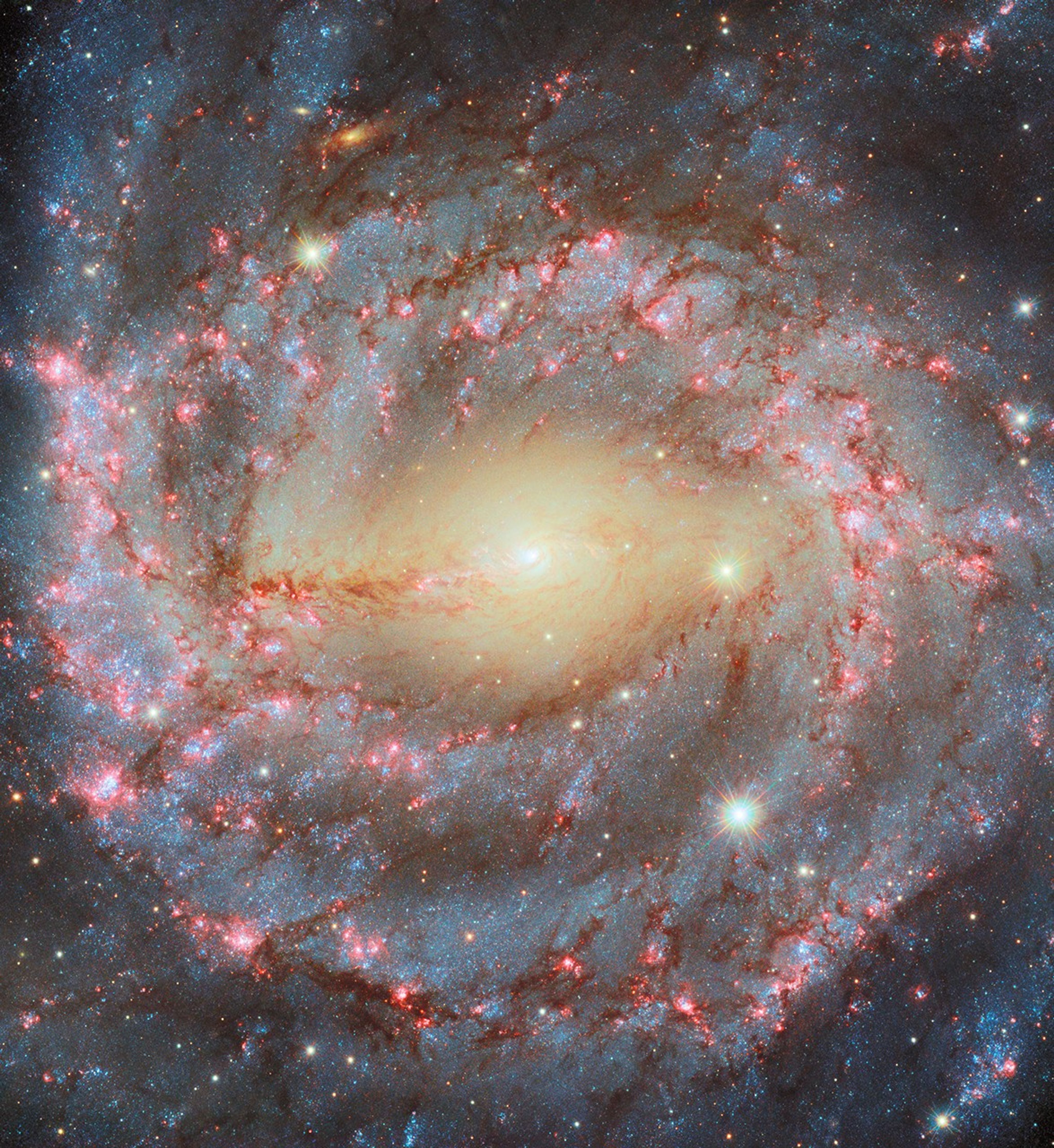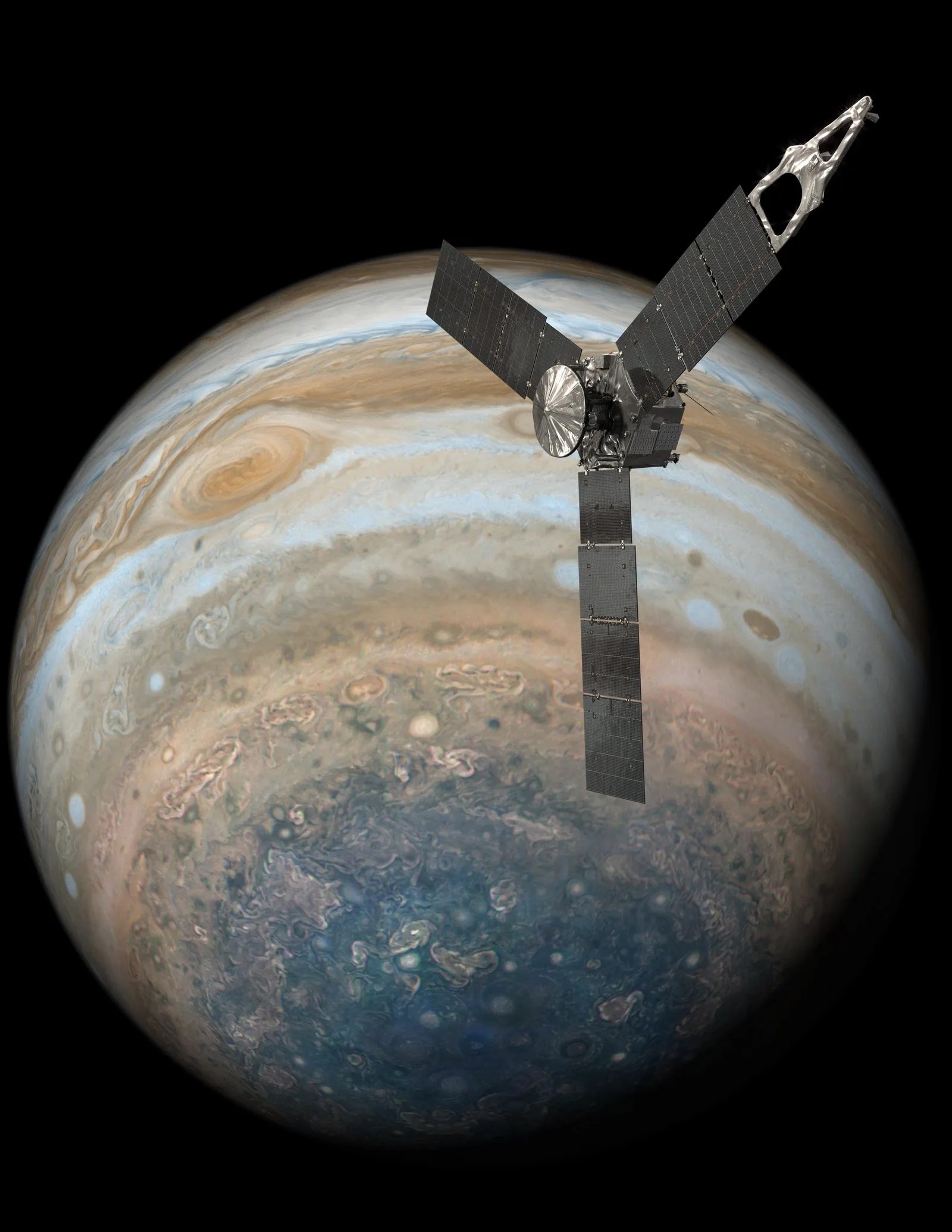4 min read
Amazing images and surprising discoveries from NASA’s Hubble Space Telescope have rewritten textbooks and inspired countless people worldwide in the telescope’s 30 years of life. But as the COVID-19 pandemic has upended lives and work around the world, the Hubble team has adjusted their operations and workflow to keep the mission going despite the challenges presented.
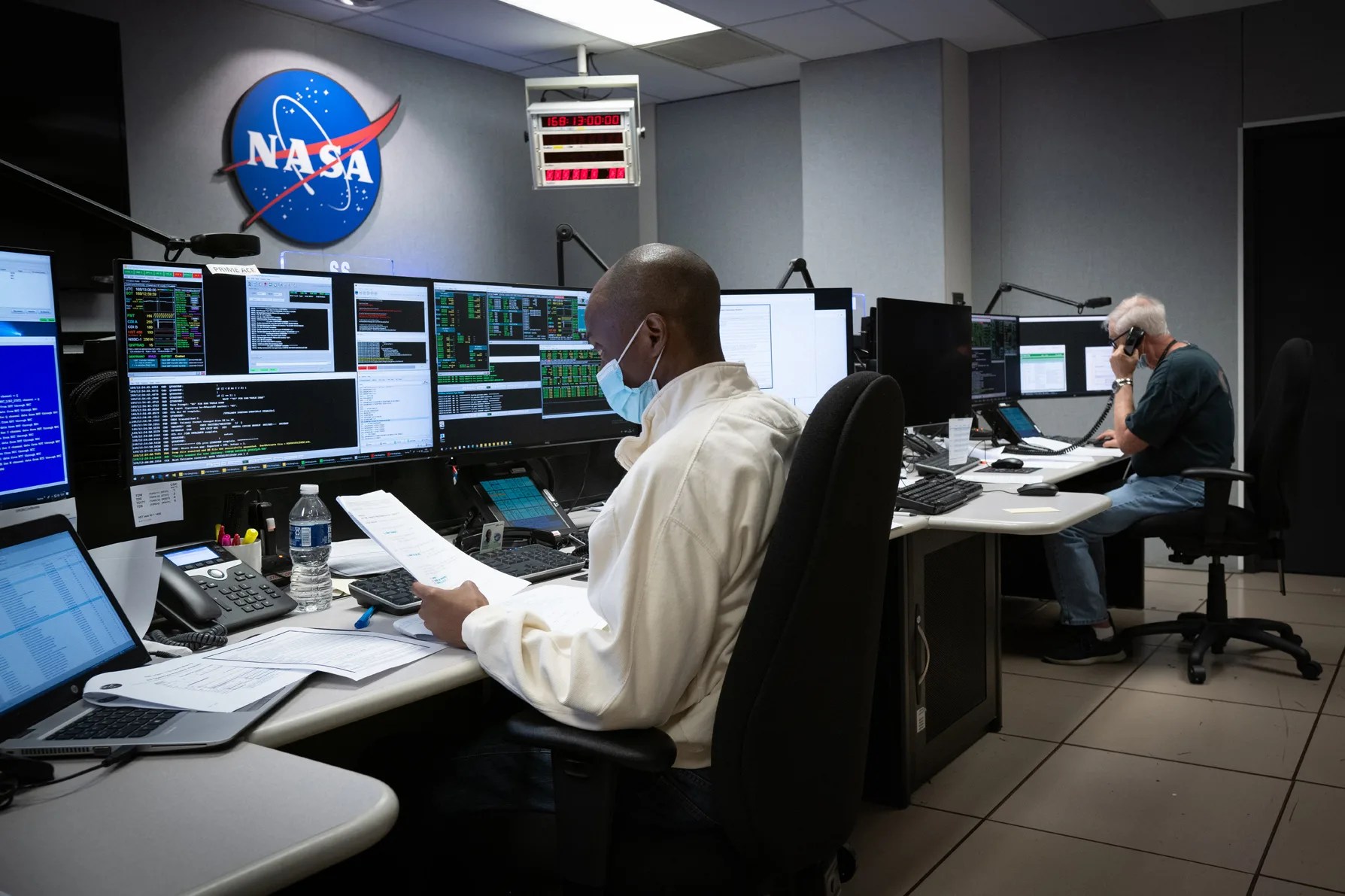
Like many others across the nation, the Hubble team has had to work from home for the past several months to maintain social distancing and prevent the spread of the virus. In early 2020 before the virus, about 100 members of the Hubble operations team reported every day to NASA’s Goddard Space Flight Center in Greenbelt, Maryland, where Hubble’s control center resides. These are the crews that “fly” the telescope. Now, only two team members commute to their workplace at a time. They come in once a week to send commands and other important information to the telescope. Each person has an assigned partner who works the same shifts so that contact is limited within the team.
The rest of the Goddard operations team continues to monitor the spacecraft — reviewing its mechanical, electrical, instrument, and software systems — and remains on the lookout for anything out of the ordinary. Hubble continuously sends information about the health and status of its systems down to the ground, where automated software verifies that everything on the spacecraft is working properly. If something goes wrong, the team receives an alert from the system. Before, team members would gather in person to determine the cause of the anomaly and how to get the spacecraft back on track. Many would then assemble in the control center to help monitor and verify the observatory’s recovery. Now, for safety precautions, only a few personnel required to command, oversee and test the spacecraft come in, while the rest of the team contributes remotely.
Sometimes additional team members need to return onsite to run tests using a spacecraft simulator to resolve an issue or to prepare other ground and flight system updates. Known as the Vehicle Electrical System Test (VEST) facility, the simulator provides engineers a working model of the systems aboard Hubble. Team members follow stringent safety precautions to minimize risks whenever working in the VEST facility.
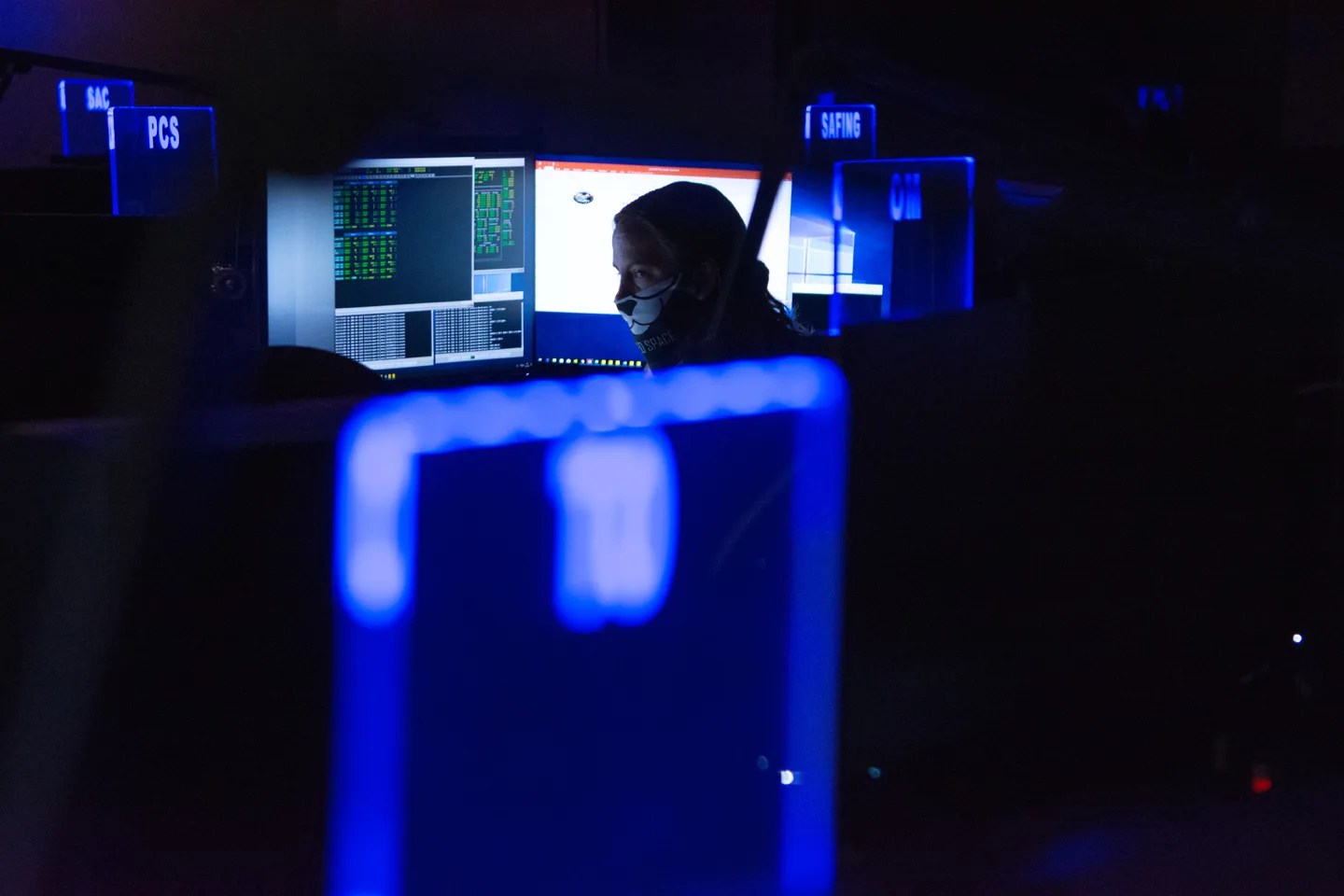
While the team has had to make modifications to address the challenges presented by COVID-19, it has done so seamlessly while continuing to return high rates of Hubble science and ensuring the health and safety of the spacecraft. None of Hubble’s science has been lost to the pandemic.
“Overall, the team has done an outstanding job adopting the temporary measures to mitigate the risk of the coronavirus to the team,” said Mission Operations Manager Dave Haskins. “With their dedication and drive, the operations team continues to provide world-class scientific observations.”
The mission operations team at Goddard also continues to work closely with the Space Telescope Science Institute in Baltimore, which carries out Hubble’s science operations. Among the Institute’s tasks are scheduling the telescope’s observations and producing a week’s worth of commands for Hubble to follow. Like most of the mission operations team, the members of the science operations team are performing their jobs remotely.
One area the pandemic did affect were in-person events planned across the country to commemorate Hubble’s 30th anniversary year. But the Hubble outreach team utilized the web and social media for their anniversary efforts. This included sharing the anniversary image, collecting Hubble birthday wishes from celebrities and social media influencers, highlighting the telescope’s great discoveries and history through numerous videos, coordinating question-and-answer sessions with scientists and engineers on the team, hosting a weekly trivia campaign, and publishing “What Did Hubble See on Your Birthday?”
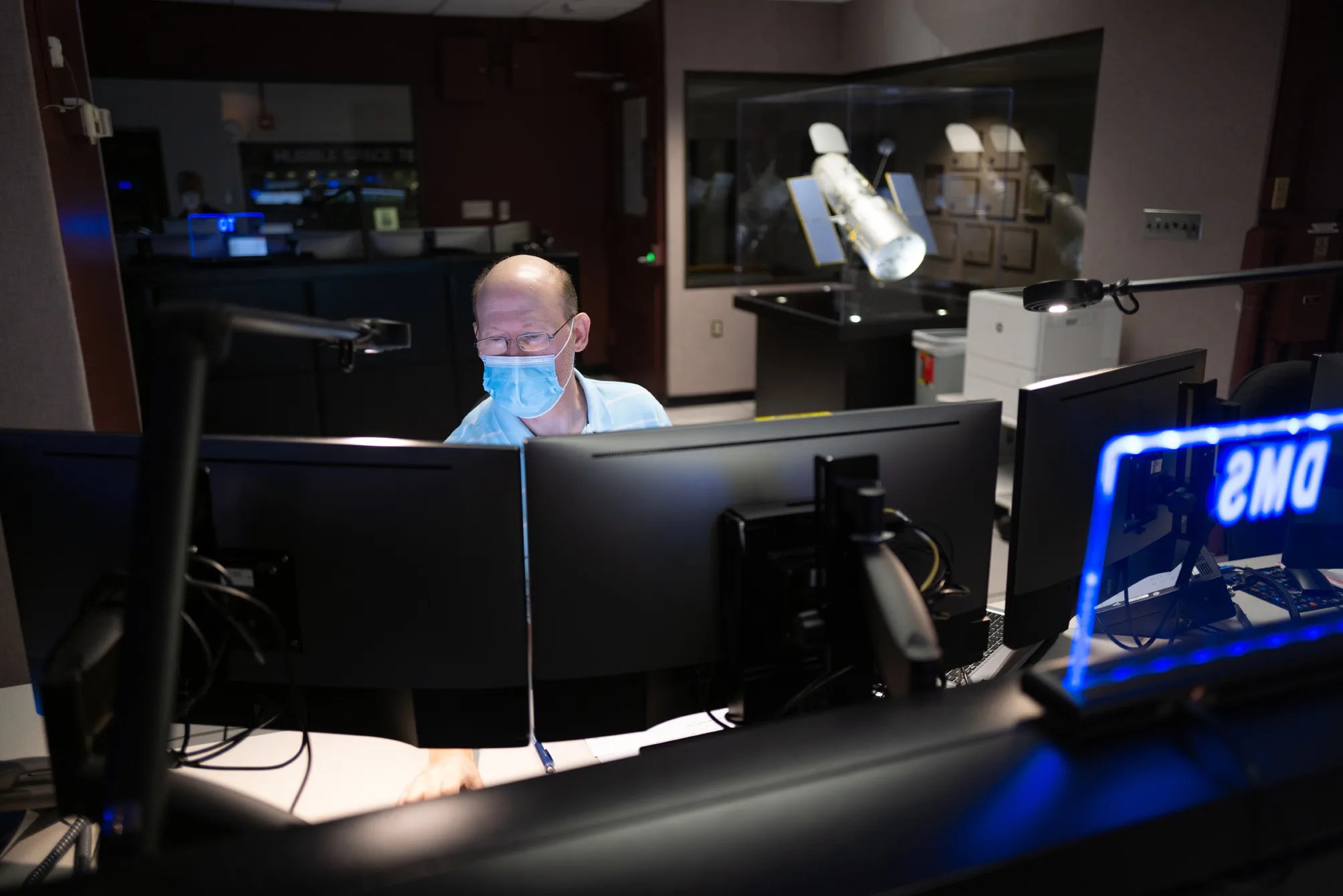
As Hubble continues into its fourth decade, it will keep on surprising us with its extraordinary images, as well as providing us with information on how the universe works and what we can learn from it. The Hubble team will continue to plan for an eventual return to their respective work areas when it is safe to do so. Despite the challenges, this pandemic has not lessened the motivation or desire to continue exploring the cosmos and the secrets it possesses.
By Janiel Hernandez
NASA's Goddard Space Flight Center

